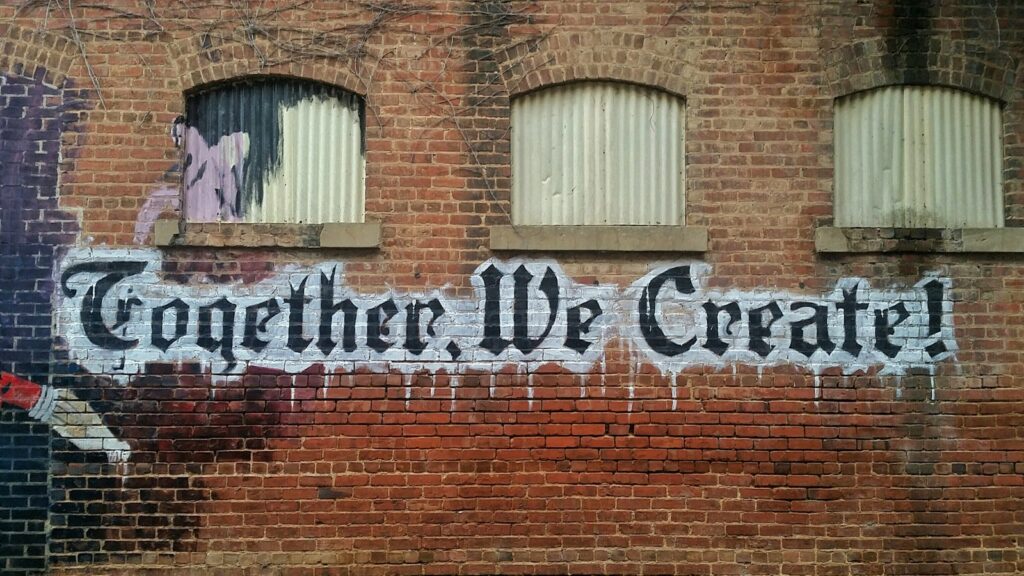The Importance of Decorum Within a Society
Decorum, often understood as the set of proper behaviours, manners, and etiquette that individuals adhere to in social interactions, is a foundational element of any society. It governs the way people conduct themselves in public and private spaces, ensuring that interactions remain respectful, orderly, and harmonious. The necessity of decorum extends far beyond superficial niceties; it is integral to the smooth functioning of communities and the preservation of social harmony. This weeks newsletter explores the importance of decorum in society, the reasons behind the need for etiquette and manners, and the potential consequences of a society lacking these fundamental principles.
Decorum as a Pillar of Social Order
Decorum acts as a glue that binds individuals within a society. It provides a framework for acceptable behaviour, enabling people from diverse backgrounds and perspectives to coexist peacefully. In any community, individuals possess varying beliefs, values, and temperaments. Without a common understanding of how to interact politely and respectfully, these differences could easily lead to misunderstandings, conflicts, and chaos. Decorum offers a shared code of conduct that mitigates these risks by establishing norms for behaviour in various social settings.
One of the key aspects of decorum is the practice of self-restraint. In social interactions, individuals are expected to exercise control over their impulses, emotions, and desires, particularly in situations where they might feel provoked or uncomfortable. This self-restraint is crucial because it prevents the escalation of conflicts and fosters a sense of mutual respect among members of society. When people consistently adhere to norms of politeness, patience, and consideration, it becomes easier to navigate social interactions without fear of unnecessary confrontation or hostility.
Furthermore, decorum contributes to the predictability of social interactions. When individuals follow established rules of behaviour, others can anticipate how they will act in certain situations, making social exchanges smoother and more predictable. This predictability is essential for building trust and cooperation among individuals. For example, when people consistently greet each other politely, wait their turn in queues, or refrain from interrupting during conversations, it creates an environment where everyone feels respected and valued, enhancing the overall quality of social life.
The Role of Etiquette and Manners in Society
Etiquette and manners are the outward expressions of decorum. They serve as practical tools for maintaining social harmony and ensuring that individuals interact in ways that are considerate of others' feelings and needs. The reason people have etiquette and manners is rooted in the basic human desire for social acceptance and cohesion. From a young age, individuals learn that certain behaviours are more likely to result in positive social interactions, while others may lead to exclusion or disapproval. Etiquette and manners, therefore, function as a social currency that enables individuals to navigate complex social landscapes with ease.
One of the primary reasons for the existence of etiquette and manners is the promotion of empathy. When individuals practice good manners, they demonstrate an awareness of and sensitivity to the needs and feelings of others. This awareness fosters a culture of empathy within society, where people are more likely to consider the impact of their actions on others before acting. For instance, saying "please" and "thank you," offering a seat to someone in need, or holding the door open for others are small gestures that convey respect and consideration. These acts, though seemingly minor, contribute to a positive social atmosphere where individuals feel valued and appreciated.
Moreover, etiquette and manners serve as a means of reducing social friction. In any society, there are inevitable differences in opinions, preferences, and lifestyles. Etiquette provides a buffer that helps to smooth over these differences, allowing individuals to interact without unnecessary tension. For example, table manners at a formal dinner ensure that everyone can enjoy the meal without discomfort or awkwardness. Similarly, workplace etiquette helps to maintain professionalism and respect among colleagues, even in high-pressure situations. By adhering to these established norms, individuals can navigate potentially contentious situations with grace and composure, preventing conflicts from arising.
The Consequences of a Society Without Decorum
A society lacking in decorum would be characterised by disorder, confusion, and conflict. Without a shared understanding of appropriate behaviour, individuals would be left to navigate social interactions based on their own subjective preferences, leading to a breakdown in communication and cooperation. The absence of decorum would likely result in a society where self-interest prevails over collective well-being, and where respect and consideration for others are diminished.
One of the most immediate consequences of a society without decorum would be the erosion of trust. Trust is a fundamental component of any functioning society, and it is built on the expectation that individuals will act in predictable and respectful ways. When decorum is absent, this expectation is shattered, and people become wary of one another. Without the assurance that others will behave considerately, individuals may become more guarded, defensive, and isolated. This breakdown in trust would make it difficult to form meaningful relationships, collaborate on common goals, or maintain a sense of community.
Furthermore, a lack of decorum could lead to an increase in conflicts and social tensions. In a society where people feel free to act on their impulses without regard for the feelings of others, misunderstandings and disputes are likely to become more frequent. The absence of established norms for resolving conflicts peacefully would exacerbate these tensions, potentially leading to a cycle of hostility and retribution. Over time, this could create a toxic social environment where aggression and incivility are normalised, further eroding the fabric of society.
In addition to fostering conflict, the absence of decorum would likely result in a decline in the overall quality of life. Social interactions would become more stressful and unpredictable, as individuals would have no reliable guidelines for how to behave or what to expect from others. Public spaces, which rely on a basic level of decorum to function smoothly, could become chaotic and unmanageable. For example, without norms for queuing, public transportation and services could devolve into disarray, leading to frustration and inefficiency. Similarly, without proper decorum in educational settings, the learning environment could become disruptive, hindering the academic progress of students.
Finally, a society without decorum would struggle to maintain its cultural identity and heritage. Decorum is often closely tied to cultural practices and traditions, which are passed down from generation to generation. These practices help to preserve the unique character of a society and provide individuals with a sense of belonging and continuity. In the absence of decorum, these cultural practices may be abandoned or forgotten, leading to a loss of cultural identity and a weakening of the bonds that hold society together.
Conclusion
Decorum, encompassing etiquette, manners, and self-restraint, is essential for the maintenance of social order and harmony. It provides a framework for respectful and predictable interactions, fosters empathy and understanding, and reduces social friction. Without decorum, society would be marked by disorder, conflict, and a decline in the quality of life. Trust would erode, conflicts would become more frequent, and cultural identity would be at risk. Therefore, the preservation and practice of decorum are crucial for the well-being and stability of any society, ensuring that individuals can live together in a peaceful and cooperative manner.
-- Simply Click Here to receive the Xqisit Community Weekly Newslettter --
Clarity in designing the future you desire is a powerful catalyst for transforming dreams into reality. It provides direction, motivation, and resilience, while also facilitating effective decision-making and resource optimisation. By cultivating a clear vision, you equip yourself with the tools needed to navigate challenges, seize opportunities, and ultimately achieve the life you envision. This clarity is not a one-time effort but a continuous process of self-discovery and strategic planning, ensuring that your dreams remain a dynamic and achievable reality.
Physical Health Mental Health Emotional Wellbeing
Energy and Productivity Disease Prevention Longevity and Quality of Life Enhanced Mood and Mental Clarity
GET 10% OFF YOUR SUPPLEMENTS & NUTRIENTS
*Recommendation*
Take a moment to digest the information shared with you in today's blog...
Has it been helpful?
According to Charles Darwin's theory of natural selection, individuals who survive are the ones best adapted for their environment.
*Please be helpful to our other likeminded community members*
By simply sharing in the comment box below 'what' and 'why' something in this blog has helped to improve the quality of your LIFE.
Your comments are VERY MUCH APPRECIATED... Thank YOU!
Sincerely, Prof. Gerald Alexander

